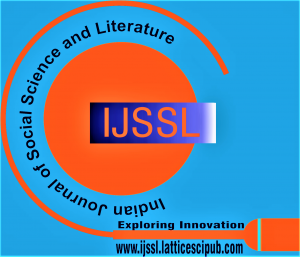![]()
Echoes of Ancestry in the Age of AI: Safeguarding Tribal Land Rights Amid a Digital Revolution
Olivia Ruhil
Olivia Ruhil, School of Public Policy, Indian Institute of Technology (IIT) Delhi, India.
Manuscript received on 17 November 2024 | Revised Manuscript received on 03 December 2024 | Manuscript Accepted on 15 December 2024 | Manuscript published on 30 December 2024 | PP: 23-31 | Volume-4 Issue-2, December 2024 | Retrieval Number: 100.1/ijssl.B115304021224 | DOI: 10.54105/ijssl.B1153.04021224
Open Access | Ethics and Policies | Cite | Zenodo | OJS | Indexing and Abstracting
© The Authors. Published by Lattice Science Publication (LSP). This is an open-access article under the CC-BY-NC-ND license (http://creativecommons.org/licenses/by-nc-nd/4.0/)
Abstract: As Artificial Intelligence (AI) rapidly transforms governance systems worldwide, its impact on tribal land rights in India brings both hope and concern. This paper delves into the unique challenges and opportunities AI presents for tribal communities, who have historically fought to protect their ancestral lands. AI technologies, like advanced land mapping and automated records management, promise to make land governance more efficient and transparent. Yet, these advancements come with risks, such as data privacy issues, potential cultural erosion, and the fear of repeating past injustices. By exploring India’s legal protections, including the Constitution [1], the Forest Rights Act (FRA) [19], and the Panchayats (Extension to Scheduled Areas) Act (PESA) [20], this paper emphasises the importance of respecting tribal autonomy and cultural heritage. Real-world examples, such as AI’s use in the Digital India Land Records Modernisation Programme, shed light on the balance needed between progress and preservation [7]. Grounded in insights from thinkers like Amartya Sen and Michel Foucault [15], the discussion calls for an approach where AI empowers rather than marginalises, highlighting the need for ethical safeguards, meaningful community involvement, and ongoing oversight. Ultimately, the goal is to ensure that AI becomes a tool for upliftment, enriching tribal communities without compromising their rich cultural identities.
Keywords: Artificial Intelligence, Tribal Land Rights, Cultural Heritage, Data Sovereignty, Forest Rights Act, Panchayats (Extension to Scheduled Areas) Act, Ethical AI, Indigenous Communities, Land Governance, Community Empowerment.
Scope of the Article: Law
